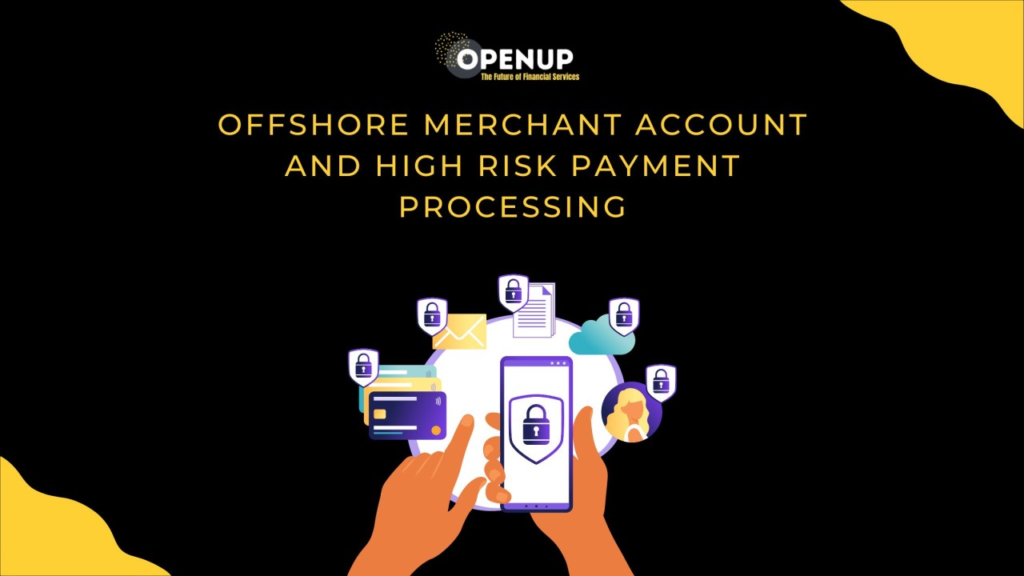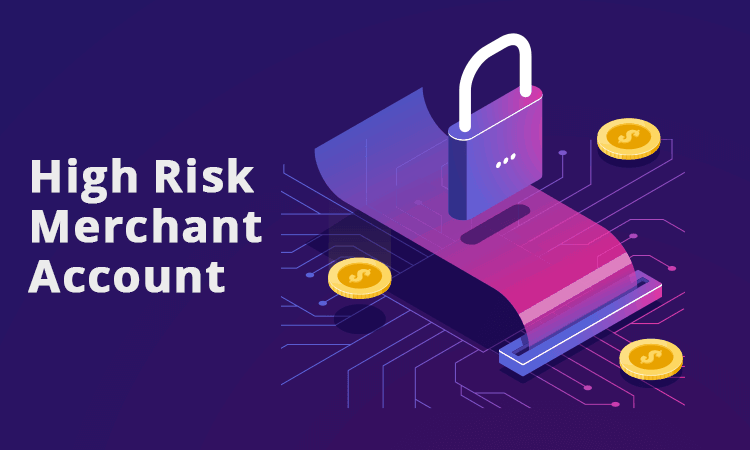AUTHOR : HANIYA SMITH
DATE : 13/09/2023
In the fast-paced world of e-commerce[1] and online businesses, the need for payment processing solutions is more significant than ever before. However, not all businesses fit into the same mold when it comes to merchant accounts[2]. Some businesses are classified as high risk due to various factors, and when operating in Europe, it’s essential to understand the intricacies of obtaining a high-risk merchant account[3]. In this comprehensive guide, we will explore what high-risk merchant accounts[4] are, why your business might fall into this category, the challenges you may face, and how to secure one in Europe.
Understanding High Risk Merchant Accounts
What is a High Risk Merchant Account?
A high-risk merchant account is a specialized financial service designed for businesses that are deemed riskier to process payments[5] for due to various factors, such as industry type, chargeback potential, or credit history.
Why Does a Business Need a High Risk Merchant Account?
Businesses considered high risk often face limited payment processing options. A high-risk merchant account provides a lifeline for these businesses, enabling them to accept payments from customers without restrictions.
Types of High Risk Industries
High risk can encompass various industries, including but not limited to online gambling, adult entertainment, pharmaceuticals, and subscription services.
The Challenges of Obtaining a High Risk Merchant Account in Europe
Stringent Regulatory Environment
Europe has a complex and strict regulatory environment when it comes to financial services, including high risk merchant accounts. Navigating these regulations can be challenging.
Risk Mitigation
Payment processors are cautious when dealing with high-risk businesses. They often require thorough risk mitigation strategies to minimize potential losses.
Higher Fees
Due to the inherent risks, high-risk merchant accounts typically come with higher fees and processing rates.
Securing a High Risk Merchant Account in Europe
Partner with an Expert
Engaging a financial expert or consultant with experience in high risk merchant accounts can be invaluable. They can guide you through the process and help you identify suitable providers.
Prepare Documentation
Compile all necessary documentation, including financial statements, business plans, and compliance records, to demonstrate your business’s legitimacy.
Choose the Right Payment Processor
Select a payment processor that specializes in high risk industries and has a proven track record of success in Europe.
Implement Robust Risk Management
Develop and implement a comprehensive risk management strategy to reassure payment processors and reduce potential chargebacks.
Conclusion
Securing a high risk merchant account in Europe can be a daunting task, but with the right approach and expert guidance, it is entirely achievable. By understanding the unique challenges and regulations, preparing your documentation, and selecting the right payment processor, your high-risk business can thrive in the European market.
Overcoming Regulatory Hurdles

GDPR Compliance
One of the significant challenges businesses face in Europe is complying with the General Data Protection Regulation (GDPR). This data protection law is stringent and requires businesses to protect the personal data of their customers. High-risk businesses must invest in robust data security measures and compliance to meet these standards.
Anti-Money Laundering (AML) Regulations
AML regulations are another aspect that high-risk businesses must consider. Europe has strict AML laws in place to prevent money laundering and terrorist financing. Adhering to these regulations can be complex and time-consuming, but it’s essential to gain approval for a high-risk merchant account.
Reducing Chargebacks
Chargeback Prevention
High-risk businesses often experience higher chargeback rates. To mitigate this, implement proactive chargeback prevention measures, such as transparent billing descriptors, clear return policies, and efficient customer support to address disputes promptly.
Chargeback Dispute Resolution
When chargebacks occur, it’s crucial to have a well-defined dispute resolution process in place. This can help you recover lost revenue and maintain a positive relationship with payment processors.
Payment Processing Solutions
High Risk Payment Gateway
Choosing the right payment gateway is critical for high-risk businesses. Look for gateways that specialize in serving high-risk industries, offer multi-currency support, and have robust fraud detection mechanisms.
Offshore Merchant Accounts
Some businesses may consider offshore merchant accounts[1] as a viable solution. These accounts are registered in countries with more relaxed regulations, providing greater flexibility, but they often come with higher processing fees.

Building Trust with Financial Institutions
Transparent Business Practices
Transparency is key to building trust with financial institutions. Provide clear information about your business, its operations, and its financial health. Transparency demonstrates your commitment to ethical business practices.
Strong Financial Records
Maintain solid financial records that showcase your business’s stability and ability to handle financial transactions responsibly.[2]
Final Thoughts
Navigating the landscape of high-risk merchant accounts in Europe can be challenging, but it’s not insurmountable. With careful planning, compliance with regulations, and strategic partnerships with experienced payment processors, your high-risk business can thrive in the European market.
Debunking Common Misconceptions
1: High Risk Equals Unprofitable
- One common misconception is that high-risk businesses are unprofitable. While they face unique challenges, many high-risk industries can be highly lucrative. With the right strategies, these businesses can thrive in Europe.
2: High Risk Means Immediate Rejection
- Some businesses assume that being labeled high risk means automatic rejection for a merchant account. While it may be more challenging, many payment processors specialize in serving high-risk industries and can help these businesses navigate the approval process.
3: All High-Risk Industries Are Equal
- Not all high-risk industries are the same. Each industry has its unique risk factors and considerations. It’s crucial to understand the specific challenges associated with your industry and Alsotailor your approach accordingly.
Staying Competitive in a High-Risk Landscape
Leveraging Data Analytics
- Data analytics can be a powerful tool for high-risk businesses. By analyzing customer behavior and transaction data, businesses can identify patterns, detect fraud early, and Also make informed decisions to minimize risks.
Expanding Globally
- Europe offers a diverse market with substantial potential. High-risk businesses can expand their reach by targeting multiple European countries[3]. However, this expansion should be well-planned and consider regional regulations.
Diversifying Payment Options
- Offering a variety of payment options can attract more customers and Also reduce the risk of losing sales. High-risk businesses should explore alternative payment methods and wallets to cater to a broader audience.
Staying Compliant and Secure
Regular Compliance Audits
- High-risk businesses[4] must conduct regular compliance audits to ensure they remain aligned with evolving regulations. This proactive approach can help prevent legal issues and Also maintain a trustworthy reputation.

FAQs
1. What factors make a business high risk?
- Several factors can contribute to a business being categorized as high risk, including industry type, credit history, and chargeback potential.
2. Are high-risk merchant accounts more expensive?
- Yes, high-risk merchant accounts typically come with higher fees and processing rates due to the elevated level of risk involved.
3. How can I mitigate the risks associated with a high-risk merchant account?
- Implement a robust risk management strategy, partner with a specialized payment processor, and maintain clear and compliant documentation.
4. Can my high-risk business succeed in Europe?
- Yes, with the right approach and the assistance of experts, high-risk businesses can thrive in the European market.





